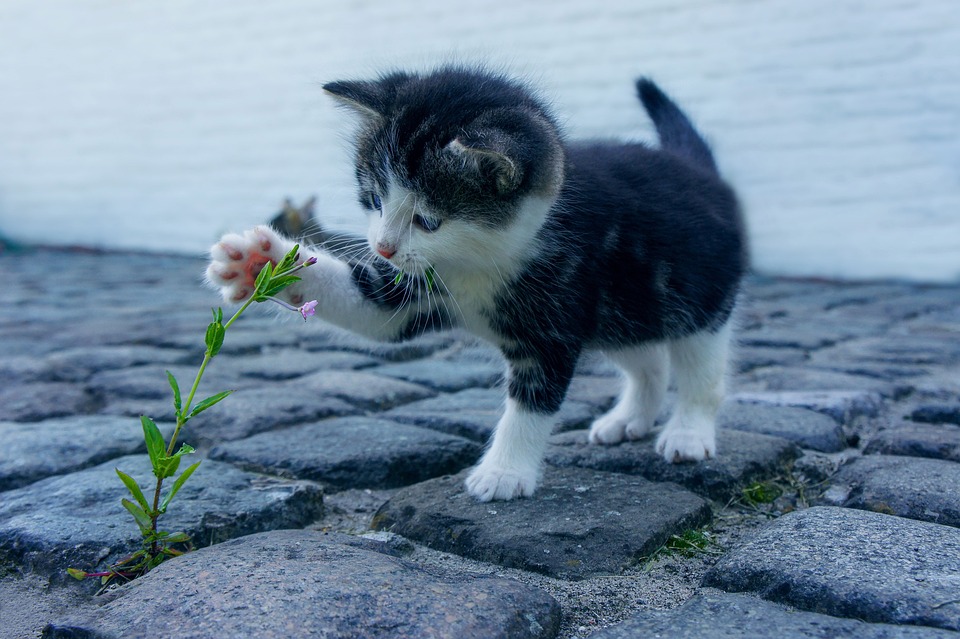As cat owners, it is crucial to be aware of the signs of ringworm in cats and take appropriate action to address this fungal infection. Ringworm is not caused by a worm but by a fungus, and it can affect our beloved feline companions. By recognizing the signs early on and seeking prompt veterinary care, we can effectively treat ringworm and prevent its spread.
One of the most common signs of ringworm in cats is the appearance of circular patches of hair loss. These patches may start small but can gradually increase in size. They are often accompanied by scaly, crusty, or red skin. If your cat seems excessively itchy or is frequently scratching, it may also be a sign of ringworm. The fungal infection can cause discomfort, leading to increased scratching, biting, or licking of the affected areas.
Ringworm can also cause the hair in affected areas to become brittle, dull, or damaged. You may notice hair breakage or a change in the texture and appearance of your cat’s coat. The infected areas of your cat’s skin may appear red, inflamed, or irritated. This inflammation can be a result of the body’s immune response to the fungal infection. Additionally, ringworm often causes the skin to become dry, crusty, or scaly. These rough patches may be accompanied by flakiness or peeling.
In severe cases or when left untreated, ringworm can progress to form lesions or sores on the skin. These may be accompanied by pus or discharge. If you notice any of these signs in your cat, it is crucial to consult a veterinarian for an accurate diagnosis and appropriate treatment.
To address ringworm in cats, the first step is to consult a veterinarian. They will be able to diagnose ringworm through various tests, such as a Wood’s lamp examination or fungal culture. Based on the severity of the infection, your veterinarian will recommend an appropriate treatment plan. In many cases, topical treatments such as antifungal creams or ointments may be prescribed. These medications are applied directly to the infected areas and help eliminate the fungus. In more severe or widespread cases, oral antifungal medication may be necessary, as these medications work systemically to combat the infection from within.
Since ringworm is highly contagious, it is advisable to isolate any infected cats from healthy ones to prevent further transmission. Ensure that they have a separate living area and avoid sharing bedding, toys, or grooming tools. Thoroughly cleaning and disinfecting your home is also crucial, as ringworm spores can survive in the environment. Vacuum carpets, wash bedding and fabrics, and disinfect surfaces with appropriate antifungal solutions.
Regular follow-up appointments with your veterinarian are essential to monitor the progress of treatment. Additionally, adopting preventive measures such as maintaining good hygiene, avoiding overcrowded living conditions, and keeping your cat’s living area clean can help prevent future ringworm infections.
Here are some frequently asked questions about ringworm in cats:
1. Can humans get ringworm from cats?
– Yes, ringworm is zoonotic, meaning it can be transmitted between animals and humans. It is important to take precautions and practice good hygiene when handling an infected cat.
2. How long does it take for ringworm to heal in cats?
– The duration of ringworm treatment in cats can vary depending on the severity of the infection and the chosen treatment method. It typically takes several weeks to a few months to fully resolve.
3. Can ringworm go away on its own in cats?
– While it is possible for mild ringworm infections to resolve without treatment, it is not recommended to rely on spontaneous healing. Prompt treatment is crucial to prevent the infection from spreading and worsening.
4. Are there any natural remedies for ringworm in cats?
– While some natural remedies may have anecdotal benefits, it is essential to consult your veterinarian for appropriate treatment. Natural remedies alone may not effectively eliminate the fungal infection.
Remember, if you suspect your cat has ringworm, seeking professional veterinary advice is vital. By promptly addressing the infection and following the prescribed treatment plan, you can help your feline friend recover quickly and prevent the spread of ringworm to other pets or family members.








